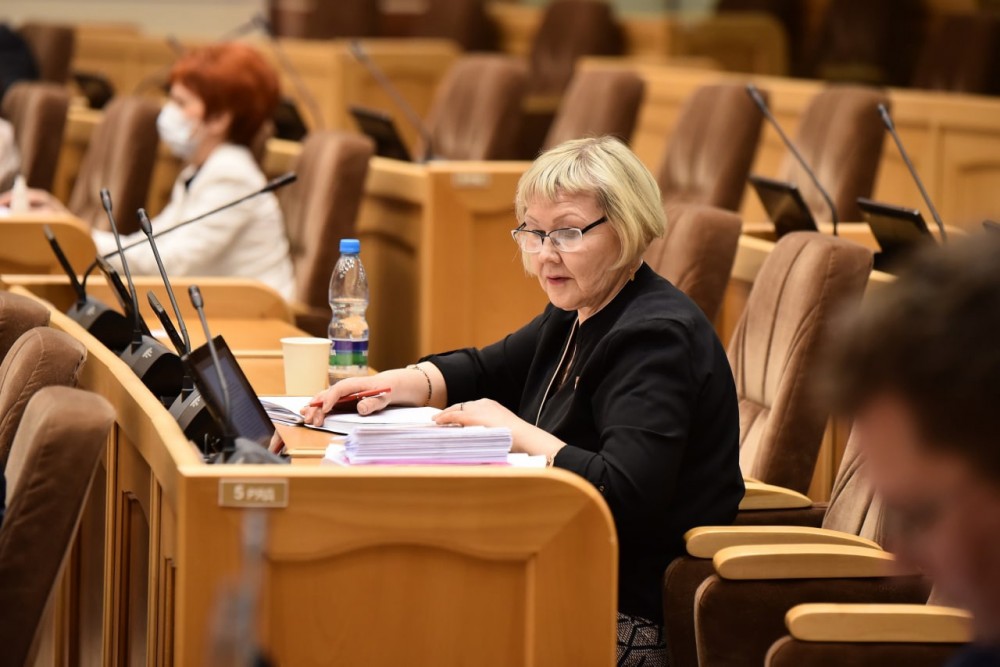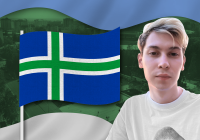
“It’s not a collective farm here.” A lawmaker in Komi was prevented from asking a question in her native language
ADVERTISEMENT
Komi State Council Deputy Elena Dyachkova was prevented from asking a question in the Komi language at a council’s meeting. This happened when Elena Shumilova, who represents the region in the Federation Council, the upper chamber of the Russian Parliament, made a report on her activities to the House.
Dyachkova, who represents the Communist Party of the Russian Federation (KPRF), asked the senator if she was forgetting her native tongue and whether her attitude towards the Komi people had changed. The question was asked in Komi, and the lawmaker’s microphone was turned off. Shumilova responded in the Komi language too. Then, the speaker of the State Council, United Russia’s Sergei Usachev, joined the conversation.
“Colleagues, should we go out and leave you to talk or what? Why are you doing this?” — the speaker told Dyachkova and Shumilova.
After that, he turned to another council member, Nikolai Bratenkov, who also represents KPRF.
“Well, we agreed, didn’t we? Nikolai Terentyevich, it’s not a collective farm here either.”
What exactly Usachev meant by the “collective farm” was not entirely clear. A minute earlier, the chairman of the house mentioned that representatives of all factions had asked questions to the senator; perhaps he made the harsh remark because he believed Dyachkova violated the rules of procedure when she took the floor.
Ekaterina Dyachkova has told The Barents Observer that she intends to complain about the actions of the speaker. The Komi language is the second state language in the Republic of Komi, and Dyachkova considers it completely justified to use it in the legislature. Usually meetings are interpreted, but this time the lawmaker was not provided with an interpreter.
“Today the interpreter was not provided with the telecommunication, although they were sitting in the assembly hall. I said that I could speak Komi and interpret myself. We live in a bilingual republic, this is what makes us special. Language is the carrier of culture.
ADVERTISEMENT
Of course, this outraged me. The microphone should have been on, and I had the right to speak to the senator, the representative of our republic, who is also a native speaker of the Komi language and culture. And it is the language that brings her closer to the native people.”
Ekaterina Dyachkova says she intends to make a complaint to the procedures commission.
It was an insult. On what basis does Usachev comment on the deputies? Is he above us? Who gave him the right to judge? I think it was insulting to all of us, the Komi-speaking people. Both for me and for my colleague.”
The lawmaker says she has her microphone turned off regularly. The rules of procedure limit floor time but Dyachkova needs twice as much time as she speaks through an interpreter. This, however, is not taken into account.
Dyachkova notes that the Komi language in the republic is “in a decadent state.” Komi is in little demand among young people; there are fewer and fewer speakers. You can read more about the status of the preservation of national heritage in Komi in Barents Observer Russian article “The Komi Republic is not the Russian North.” Interview with the editor of the decolonial media “Komi Daily”.
It’s also worth mentioning that Russian President Vladimir Putin just signed a law denouncing the Council of Europe’s Framework Convention for the Protection of National Minorities which Russia signed in 1996.
ADVERTISEMENT
The Barents Observer Newsletter
After confirming you're a real person, you can write your email below and we include you to the subscription list.



